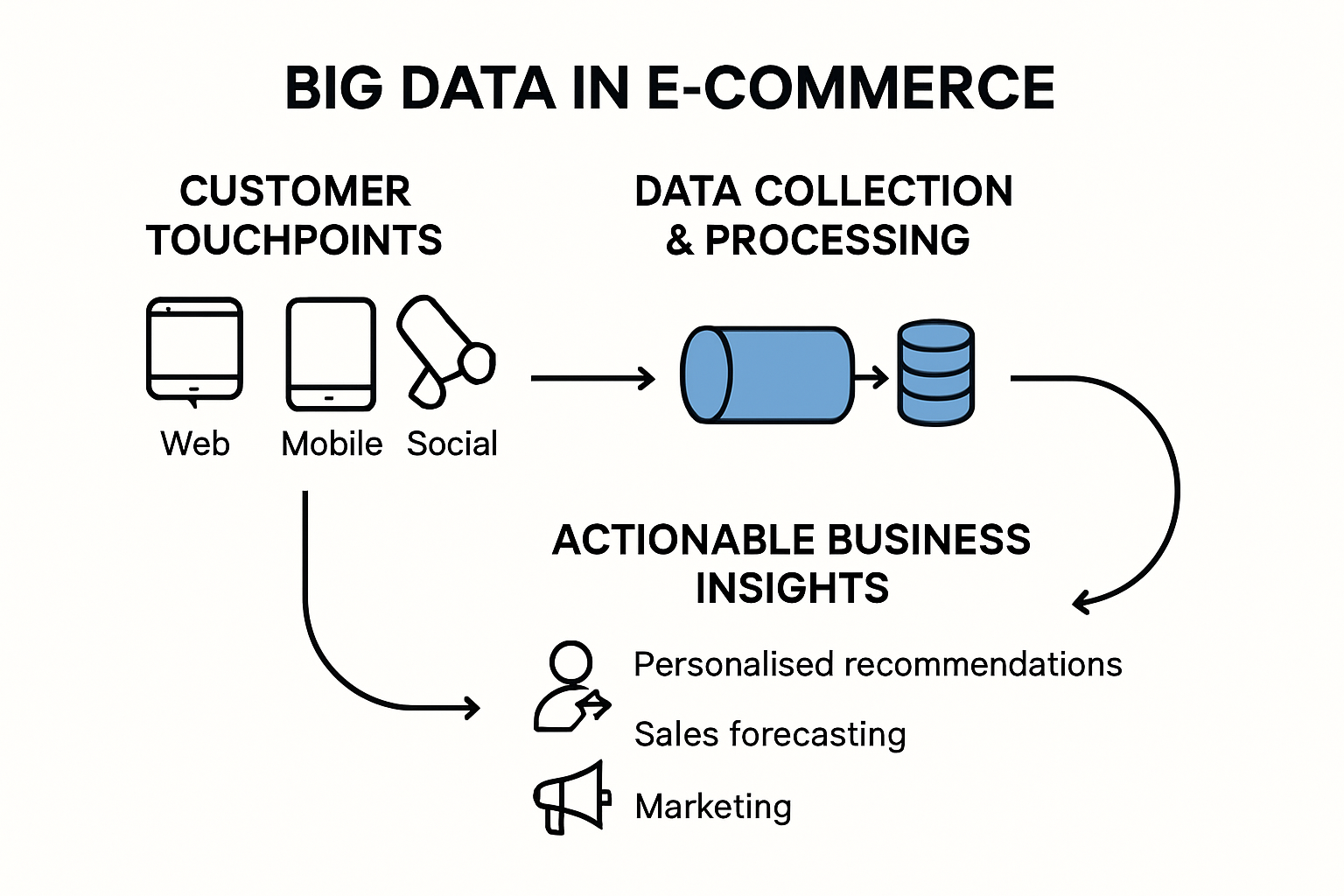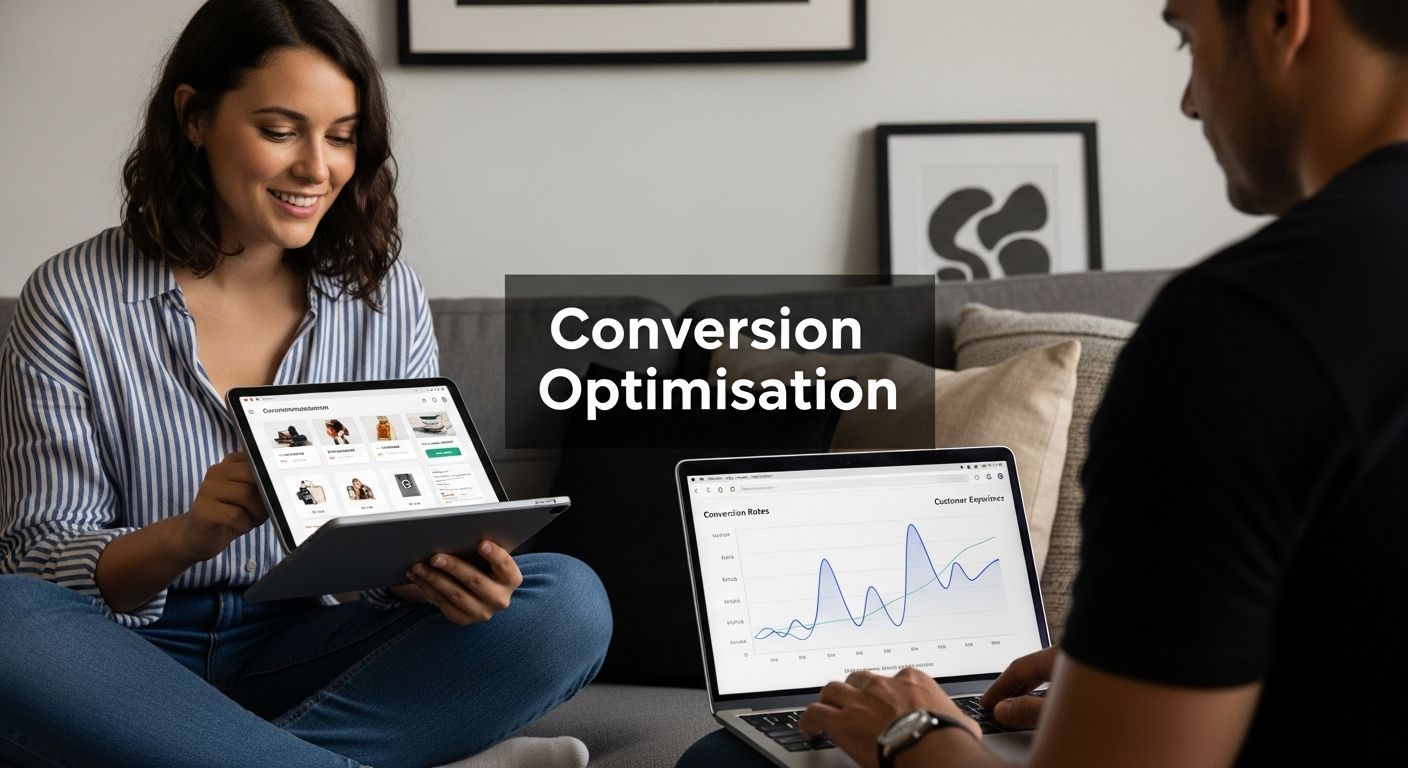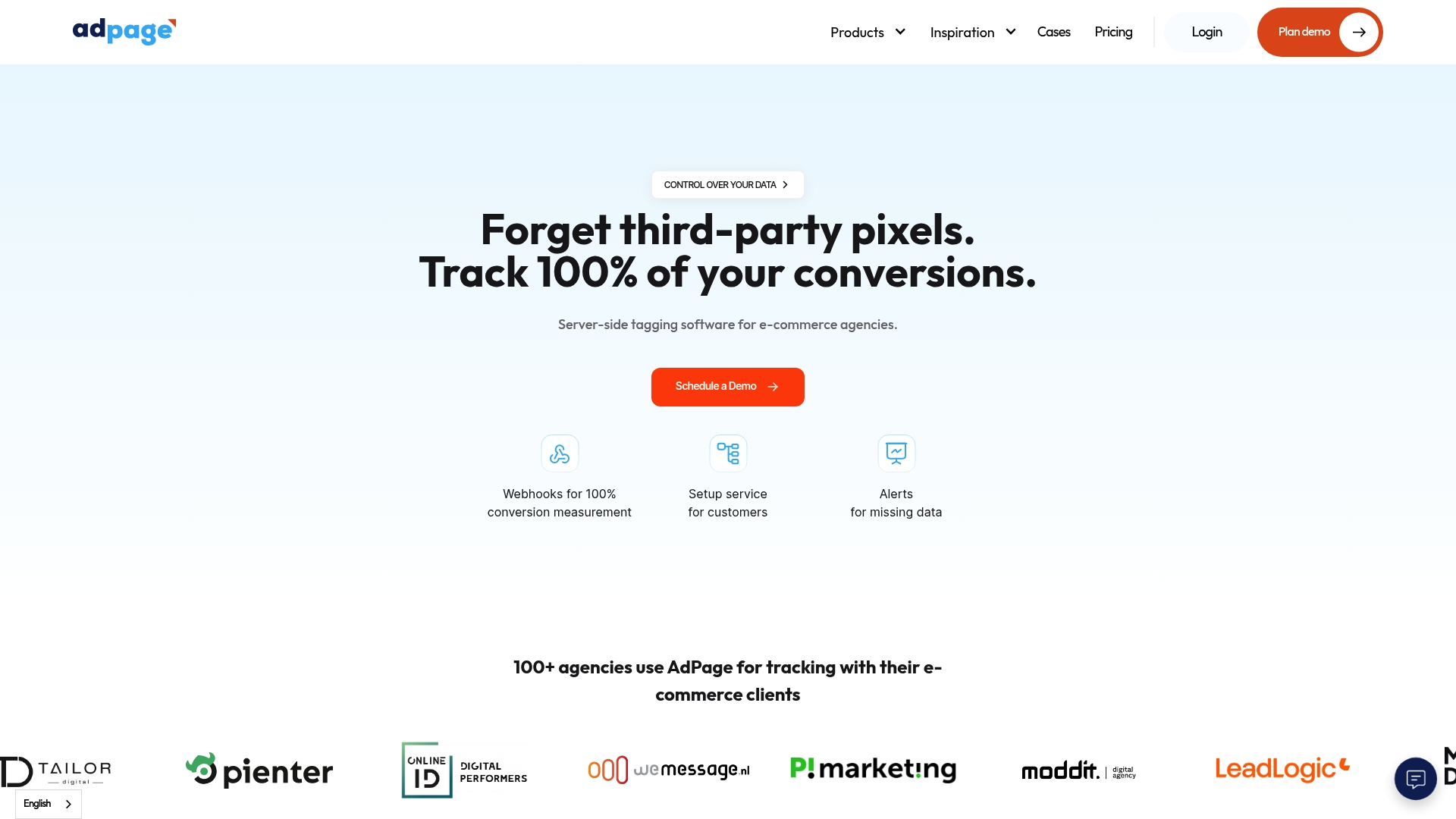Big data is reshaping how online shops understand, predict, and serve their customers. You might think it is all about tracking sales or gathering heaps of user data. Yet, what truly sets it apart is its power to drive action and results. Consider this, Amazon generates around 30% of its sales through targeted recommendations powered by big data analytics. The real story is how these insights are quietly transforming everything from marketing to the moment a shopper clicks 'buy'.
Table of Contents
- Understanding Big Data In E-Commerce
- Key Benefits For Online Retailers And Brands
- Practical Applications For Conversion Optimization
- Future Trends And Analytics Best Practices
Quick Summary
| Takeaway | Explanation |
|---|---|
| Harness big data for strategic insights | Big data analytics can uncover valuable insights about customer behaviors, enhancing decision-making and strategy development. |
| Utilize predictive analytics for sales forecasting | Advanced predictive models can accurately forecast sales, helping businesses to optimize inventory and marketing efforts effectively. |
| Implement precision marketing strategies | By analyzing detailed customer data, retailers can create hyper-personalized marketing campaigns that target consumer preferences precisely. |
| Focus on user experience optimization | Enhancing user experience through data-driven strategies can lead to higher engagement and improved conversion rates. |
| Prioritize privacy and security in data usage | It is crucial for e-commerce businesses to balance personalization and data protection to build customer trust and loyalty. |
Understanding Big Data in E-Commerce
Big data represents a transformative force in e-commerce, revolutionizing how businesses understand, predict, and respond to customer behaviors. At its core, big data in e-commerce involves collecting, processing, and analyzing massive volumes of digital information generated through online interactions, transactions, and customer touchpoints.
The Data Ecosystem in Online Retail
In the digital marketplace, every click, search, purchase, and browsational pattern generates valuable data. Modern e-commerce platforms accumulate terabytes of information daily, creating a complex ecosystem of customer insights. Learn more about data analytics challenges that businesses encounter when managing these expansive datasets.
According to research from Oxford Internet Institute, recommender systems powered by big data analytics can significantly personalize user experiences. These systems tackle critical challenges like cold start problems, scalability issues, and addressing the long tail of product diversity. By leveraging advanced machine learning algorithms, e-commerce platforms can transform raw data into actionable strategic intelligence.
Predictive Analytics and Sales Forecasting
Predictive analytics represents a pinnacle of big data application in e-commerce. Research from computational analytics experts demonstrates how sophisticated techniques like Long Short-Term Memory (LSTM) networks can generate remarkably accurate sales forecasts. These advanced models do more than simple trend extrapolation they incorporate cross-series information, understanding complex demand relationships within product hierarchies.
The predictive power extends beyond mere numerical projections. By analyzing historical purchasing patterns, seasonal trends, and individual customer behaviors, businesses can anticipate demand, optimize inventory management, and design targeted marketing strategies. This approach transforms data from a passive record into an active strategic asset.
Big data in e-commerce is not just about collecting information it is about extracting meaningful, actionable insights that drive business growth. From understanding customer preferences to predicting market trends, the strategic application of data analytics provides businesses with a competitive edge in an increasingly digital marketplace.

The sophisticated interplay of technology, mathematics, and business intelligence continues to reshape how online retailers understand and serve their customers, making big data an indispensable tool in modern e-commerce strategy.
Key Benefits for Online Retailers and Brands
Big data analytics has emerged as a game-changing strategy for online retailers and brands, offering unprecedented insights and competitive advantages in the digital marketplace. By transforming raw customer data into strategic intelligence, businesses can unlock multiple layers of value that directly impact their bottom line.
To help visualize the main benefits that big data analytics brings to e-commerce retailers, the table below summarizes the key advantages discussed:
| Benefit | Description |
|---|---|
| Revenue optimization & competitive edge | Enables precise sales generation and rapid response to market trends |
| Precision marketing & customer experience | Delivers personalized campaigns and recommendations tailored to individual preferences |
| Strategic decision-making & risk management | Provides real-time insights for better planning and risk mitigation |
| Enhanced inventory & sales forecasting | Uses predictive models for accurate demand anticipation and efficient stock control |
| Agile adaptation to trends | Identifies emerging customer needs before traditional research methods detect them |
Revenue Optimization and Competitive Advantage
Research from Electronic Markets reveals that e-commerce firms can generate substantial business value through sophisticated data analytics. For instance, Amazon has successfully leveraged its recommendation engine to generate approximately 30% of its sales through targeted insights. Discover strategies to boost online sales that can transform your digital revenue approach.
The power of big data extends beyond simple sales tracking. Research published in Electronic Markets demonstrates how analytics enable companies to proactively identify unfulfilled consumer needs, creating dynamic capabilities that allow businesses to respond rapidly to emerging market trends.
Precision Marketing and Customer Experience
Precision marketing represents one of the most significant benefits of big data in e-commerce. By analyzing granular customer data, brands can create hyper-personalized marketing campaigns that speak directly to individual consumer preferences. This approach goes beyond traditional demographic segmentation, enabling businesses to craft messaging and product recommendations with unprecedented accuracy.
Advanced predictive models allow retailers to understand customer behavior patterns, anticipate future purchasing decisions, and design targeted interventions. Computational research demonstrates how techniques like Long Short-Term Memory (LSTM) neural networks can generate remarkably accurate sales forecasts, helping businesses optimize inventory management and marketing strategies.
Strategic Decision Making and Risk Management
Big data transforms decision-making processes from intuition-based to data-driven. Online retailers can now access real-time insights that provide a comprehensive view of market dynamics, customer sentiment, and potential risks. This approach allows for more agile and informed strategic planning, reducing uncertainty and enabling more precise resource allocation.
The ability to process and interpret massive datasets means businesses can identify emerging trends, potential supply chain disruptions, and changing consumer preferences before they become apparent through traditional market research methods. By continuously monitoring and analyzing data streams, brands can maintain a proactive stance in an increasingly competitive digital marketplace.
Ultimately, big data in e-commerce is not just a technological tool but a strategic asset that empowers businesses to understand, predict, and shape customer experiences with unprecedented precision and effectiveness.
Practical Applications for Conversion Optimization
Conversion optimization represents a critical frontier where big data transforms theoretical insights into tangible business outcomes. By leveraging sophisticated analytics, e-commerce businesses can systematically enhance user experiences, drive engagement, and ultimately increase sales performance.
Dynamic Content Recommendation Strategies
Research from computational analytics reveals the remarkable potential of multi-armed bandit algorithms in content recommendation. These advanced techniques demonstrated a significant 6.13% increase in click-through rates and a 16.1% increase in conversion rates compared to traditional static approaches. Learn expert strategies to increase conversions and unlock your digital potential.
Advanced recommendation systems go beyond simple product suggestions. By analyzing user behavioral patterns, browsing history, and contextual interactions, these intelligent algorithms can predict and present the most relevant content at precisely the right moment. This personalized approach reduces cognitive friction, making the purchasing journey more intuitive and compelling.
User Experience and Interaction Optimization
Emerging research on user interactions highlights the critical importance of platform compatibility and mobile optimization in driving conversions. Modern e-commerce platforms must deliver seamless experiences across diverse devices and browsers, ensuring that every potential customer encounters a frictionless journey from initial interest to final purchase.
Deep neural networks enable unprecedented levels of interaction optimization. Computational studies demonstrate how intelligent systems can dynamically select and order recommendation modules on product pages, resulting in a 2.48% increase in click-through rates and a 7.34% boost in purchase-through rates compared to static configurations.
Predictive Conversion Enhancement
Below is a table presenting key statistics from the article, highlighting the measurable impact of analytics-driven approaches in e-commerce:
| Statistic | Value | Context/Source |
|---|---|---|
| Amazon sales through recommendations | ~30% | Cited in revenue optimization, benefits, and introduction |
| CTR increase using multi-armed bandit algorithms | 6.13% | Computational analytics research on dynamic recommendations |
| Conversion rate increase with dynamic recommendations | 16.1% | Same as above |
| CTR boost from deep neural networks for recommendation modules | 2.48% | Computational studies on interaction optimization |
| Purchase-through rate boost from neural network module selection | 7.34% | Same as above |
Predictive analytics transforms conversion optimization from reactive guesswork into a precise, data-driven discipline. By integrating machine learning models with comprehensive user data, businesses can anticipate potential drop-off points, identify friction areas, and proactively design interventions that guide users toward completing their purchases.
These predictive models analyze multiple variables simultaneously advanced navigation patterns, historical purchasing behaviors, seasonal trends, and individual user preferences. This holistic approach allows for nuanced, contextually relevant interventions that feel natural and supportive rather than intrusive.
Conversion optimization through big data is not merely about increasing numbers it is about creating more meaningful, personalized digital experiences that align seamlessly with individual user needs and expectations. As technology continues to evolve, the intersection of data science and user experience design will become increasingly sophisticated, offering unprecedented opportunities for e-commerce businesses to connect with their customers.

Future Trends and Analytics Best Practices
As e-commerce continues to evolve, big data analytics stands at the forefront of technological innovation, presenting transformative opportunities for businesses willing to embrace cutting-edge strategies. Explore our comprehensive guide to analytics best practices to stay ahead of the competitive curve.
Emerging Technologies and Predictive Intelligence
Research from Electronic Markets emphasizes that leading e-commerce companies are increasingly leveraging big data analytics (BDA) to drive robust decision-making and solve complex business challenges. The future of analytics lies in advanced predictive models that can anticipate market trends with unprecedented accuracy.
Computational research demonstrates how Long Short-Term Memory (LSTM) neural networks are revolutionizing sales demand forecasting. By incorporating cross-series information from related products, these sophisticated models can generate more accurate predictions, outperforming traditional forecasting methods. This approach allows businesses to optimize inventory management, marketing strategies, and resource allocation with remarkable precision.
Privacy and Security in Data Analytics
With the increasing sophistication of data collection, privacy and security have become paramount concerns. Innovative research explores the potential of blockchain technology in enhancing recommendation systems, addressing critical challenges related to data protection and trust in online transactions.
Future best practices will require a delicate balance between personalization and privacy. E-commerce platforms must develop sophisticated approaches that deliver tailored experiences while maintaining rigorous data protection standards. This involves implementing advanced anonymization techniques, transparent data usage policies, and robust consent management systems.
Integrated and Intelligent Analytics Ecosystems
The next frontier of big data in e-commerce involves creating holistic, interconnected analytics ecosystems. Discover top trends shaping analytics in 2025 that are transforming how businesses approach data intelligence.
Companies will need to invest in advanced infrastructure that seamlessly integrates multiple data sources, including customer interactions, transaction histories, social media insights, and external market indicators. Machine learning and artificial intelligence will play crucial roles in transforming these complex datasets into actionable strategic intelligence.
The future of big data analytics in e-commerce is not just about collecting information it is about creating intelligent, adaptive systems that can learn, predict, and respond in real-time. Businesses that successfully navigate this complex landscape will gain unprecedented competitive advantages, delivering personalized experiences that anticipate and exceed customer expectations.
As technology continues to advance, the boundaries between data collection, analysis, and action will become increasingly blurred. The most successful e-commerce platforms will be those that view data not as a static resource, but as a dynamic, living ecosystem that continuously evolves and provides strategic insights.
Frequently Asked Questions
What is big data in e-commerce?
Big data in e-commerce refers to the extensive volumes of digital information generated through online transactions and customer interactions. It involves collecting, processing, and analyzing this data to gain insights into customer behaviors and market trends.
How can big data analytics boost sales for online retailers?
Big data analytics enhances sales by enabling precise sales forecasting, developing targeted marketing strategies, and providing real-time insights that allow retailers to respond quickly to market dynamics and customer preferences.
What role does predictive analytics play in e-commerce?
Predictive analytics uses advanced models to forecast future sales and customer behaviors by analyzing historical data. This helps businesses optimize inventory management and create focused marketing campaigns, ultimately increasing conversion rates.
How can e-commerce businesses ensure privacy and security when using big data?
E-commerce businesses can enhance privacy and security by adopting anonymization techniques, implementing transparent data usage policies, and maintaining robust consent management systems to protect customer information while still leveraging data for personalization.
Power Your E-Commerce Growth with Reliable Analytics
Struggling to unlock the true potential of big data in your e-commerce business? The article highlighted common challenges such as inaccurate data collection, missed conversions, and privacy concerns, all of which can hold you back from achieving real sales growth. Imagine confidently making decisions based on fully accurate analytics, rather than piecing together incomplete tracking or losing insights due to browser restrictions. With the increasing importance of server-side tagging, consent management, and secure data collection discussed in this article, you need a solution that is built for modern retail demands.

Start turning every click into valuable insight. With AdPage, you get 100% conversion tracking, robust GDPR compliance, and effortless integration with platforms like Shopify and WooCommerce. See how our server-side tagging solutions help you overcome data loss and unlock the full power of your e-commerce analytics. Act now to ensure your data works for you, not against you. Request your free onboarding at https://www.adpage.io/en and discover the difference accurate data makes.



.png)
